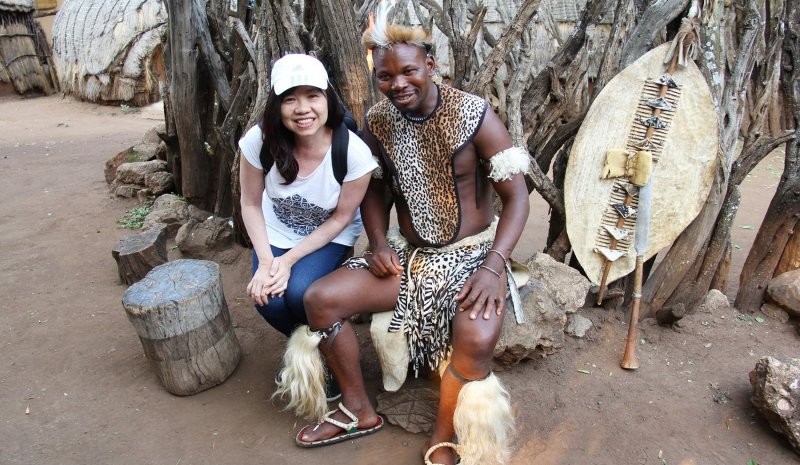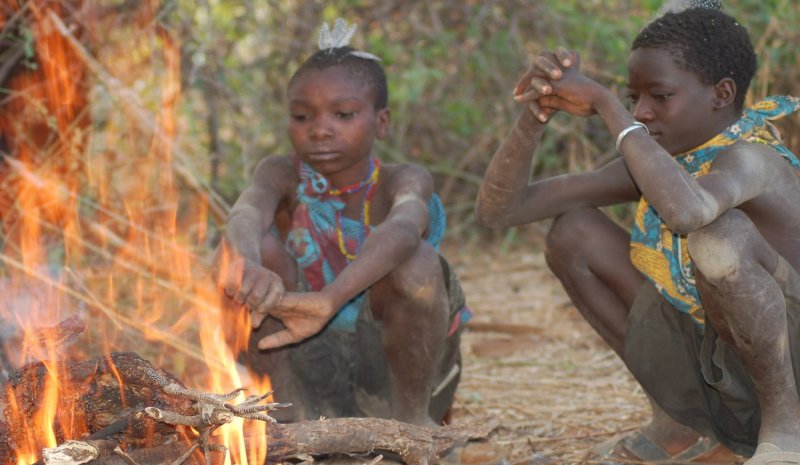-

Make a real difference...
-

to communities across Africa.
-

Share skills and knowledge...
-

and sponsor children...
-

to develop a better future
-

...and change lives forever!

The history of
South Africa can be traced back more than 100,000 years from
archaeological records, however the first known group of people
to inhabit the area were the Khoikhoi, comprising the San
hunter-gatherers and the Khoekhoe who populated the
southern and western coastal strips of South Africa for grazing. Around 500 BCE,
Bantu speaking people started migrating south into northern
South Africa settling into villages, introducing new crops and
methods of farming. By the 12th century there can be found
evidence of trading around South Africa with Chinese artefacts
identified at the ruins of Mapungubwe. The history of
South Africa becomes more detailed from the 1480s when Bartholomeu Dias, a Portuguese explorer, sailed around the Cape
of South Africa, and even more so from 1497 when Vasco da Gama
landed on the Natal Coast to the east of South Africa. The area
proved to be of little interest to the Portuguese with ships
floundering on the rocky coastline and attempts at trade with
the Khoikhoi proving hostile.
Nevertheless the
Dutch and English started making forays into the area finding it
a useful stopping off point and in 1647 a group of Dutch sailors
lived in South Africa for a year after their ship was destroyed. This experience led the Dutch to consider building a permanent
base at the Cape of Good Hope (below) under the auspices of the Dutch
East India Company led by Jan van Riebeeck, not in any way to
attempt to colonise the area, but simply to provide a manned
shelter for their trading ships as they journeyed to and from
the east as well as a source of fresh food, particularly vegetables, that were
available from the fort. Although this
fort was not intended to be a colony, within ten years, 250 white
settlers lived there and they had started to encroach on lands
previously held by the Khoikhoi, leading to friction. These
settlers were mainly Dutch employees of the Dutch East
India Company but also included Germans, Britains and Flemist
Calvinists. Within fifty years, white farmers known as trekboers were
exploring further afield pushing the Khoikhoi from the land with
many turning to servitude to the 'colonists' to support
themselves. Many of these Dutch, German and French Huguenot
settlers began to lose their sense of European identity thinking
of themselves as Afrikaner and intermarrying with the Khikhoi.

By the end of the
18th century, Dutch trading power was beginning to wane and the
British, concerned that the Cape would fall into French
Napoleonic hands, seized the area in 1795,
however it was returned eight years later before
being captured and ceded to Britain in 1806 because of the newly
formed alliance between the Dutch and Napoleon and this act was
confirmed by the Treaty of Vienna in 1815. As the British presence in the area increased with over 5000
settlers by 1820, the incomers pressed east where they
encountered the Xhosa and ongoing warfare soon become
commonplace. As this timeline was unfolding so another one was
developing, the founding of a Zulu empire by Shaka Zulu with its
considerable fighting force of warriors.

Following
the emancipation of slaves in 1834 and the British declaration
that all races were to be seen as equal, together with the
required payment of compensation to former slave owners the
Boers, as they were by then known, set off on what was termed the
'Great Trek' a breakaway from British colonial rule in favour of
finding land that could be used to establish an independent
state; a state where blacks would not be seen as equals. What they hadn't realised was that the lands found had been
temporarily vacated by the Zulu. The ensuing wars ended with the
defeat of the Zulus at the Battle of Blood River and the Boers
began to settle in Natal declaring it the Boer Republic, however
the British, concerned that the feuding could spill over into
Cape Province, annexed Natal in 1843 bringing it under direct
British rule as a crown colony. Squeezed by the British and native south Africans the Boers
moved further north (above) leading to the founding of the Orange Free
State and the Transvaal, which was later to become the South
African Republic.
The 1850s saw Britain acknowledging the existence of the
Transvaal however the Boers soon after declared it a republic.
Britain has little economic interest in the Boer areas so
allowed these events to proceed unchallenged however, in 1867,
something happened that was to steer the course of much of the
latter part of the nineteenth century; diamonds were discovered
at Kimberley suddenly making the Boer republics of sudden
economic interest. This interest manifested itself in the British wanting to
amalgamate the Boer republics with their own territory at Cape
Province which had been granted self-governance in 1872. As
such, British Cape Province unilaterally annexed the Transvaal
in 1877. The Boers retaliated in force in 1880 with the outbreak of the
first Anglo-Boer War in which they soon inflicted a heavy defeat
of the British on 27th February 1881 at the Battle of Majuba
Hill after which independence was declared as the
Zuid-Afrikaansche Republiek (South African Republic.)

Undeterred, the British, having by now seen off the Zulus in
Natal, forged ahead with flooding the area with cheap labour
triggering the Second Anglo-Boer war in 1899 which saw the Boers
defeated and the South African Republic and Orange Free State
made self-governing colonies of the British Empire. The South Africa Act of 1909 saw a union of the colonies as the
Union of South Africa; a British Dominion territory but with
home rule and similar status as Australia, New Zealand and
Canada but only whites could be elected to parliament. The
anti-black stance was compounded by the Land Act of 1913 which
prevented blacks from buying land outside Cape Province. The
following year the third Boer war, sometimes called the Maritz
Rebellion, broke out with former Boers refusing to take sides
with the British against the Germans in World War I, not least
because they were still nursing heavy casualties from the Second
Boer War. The rebellion was quickly suppressed with its ringleaders being
fined and imprisoned. On release from prison those who had risen
up in formed the National Party, a party that was to go on to
dominate the history of South Africa until the freedom of Nelson
Mandela in 1990. The subsequent history of Africa is taken up here.
South Africa History: Life in South Africa
|
South Africa History: Child Sponsor South Africa
|

|

|
Details of current volunteer work
opportunities in each of the
countries of Africa.
Find how to sponsor a child in Africa
with our list of organisations,
charities, programs and projects.
Discover all about Africa, its tourist
attractions, history, people, culture
and daily life there.
A treasure trove of African
resources from webcams to
free downloads and news.